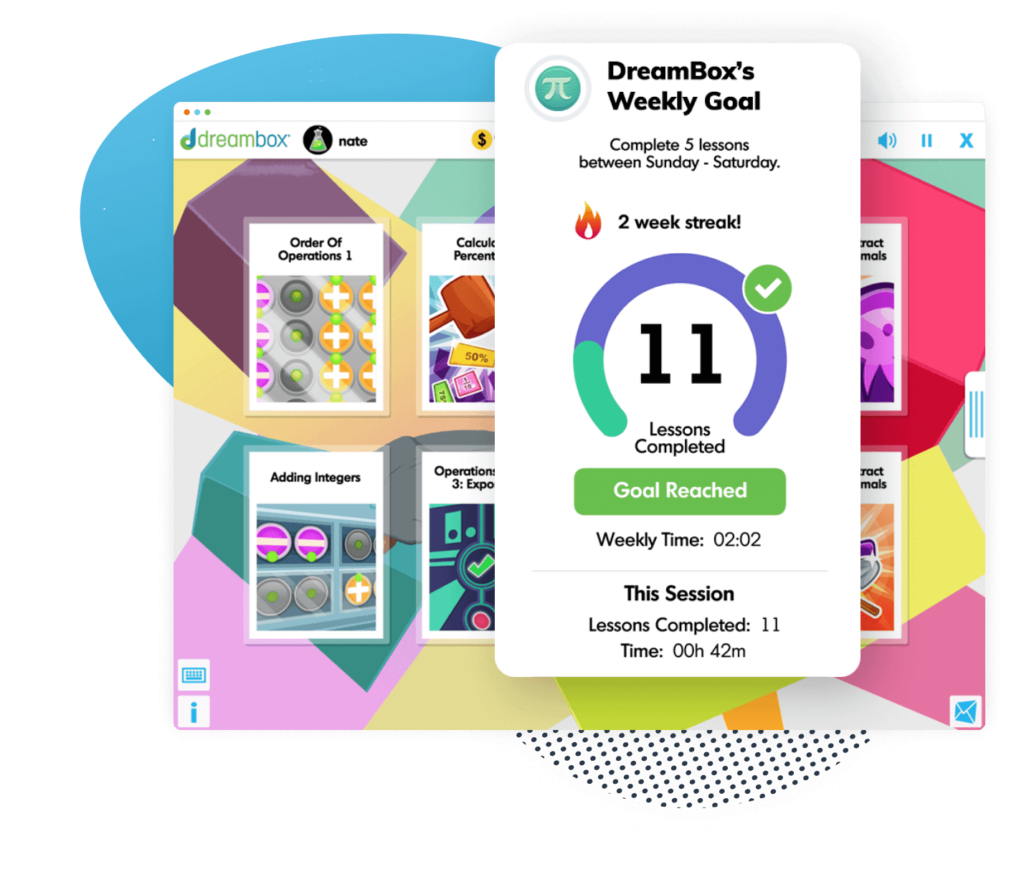Top picks for the best 6th grade homeschool curriculum
Learn what 6th grade homeschool learners need to know, and discover top 6th grade homeschool curriculums for each subject.

Author
Lisa Luciano
Published:
April 2025
Key takeaways
- • Learn what homeschool learners should know by the end of 6th grade.
- • Find out more about 6th grade homeschool curriculum choices in each subject.
- • Discover some tips for homeschooling a 6th grader.
Throughout many areas of the country, sixth grade is the first part of middle school. It’s a year of transition for students as they face new challenges and build on knowledge they have accumulated in elementary school. As much as sixth grade was a transition year for my children, it was also a transition year for me. When they hit sixth grade, I often realized I had been doing too much for them. Instead of giving them the answer to a question, I would ask them to think of a way to find the answer independently. They often heard me say, “This is the year you start to do more for yourself.” Problem-solving, critical thinking, and the ability to apply real-world connections are crucial skills to work on in sixth grade. Finding the right 6th grade homeschool curriculum is a key planning step for the year, so read on if you want to know more about how to homeschool 6th grade.
How to choose a 6th grade homeschool curriculum
There is no perfect 6th grade homeschool curriculum. The most important consideration is to find an engaging curriculum or combination that works for you and your child. Education is not all about the bookwork, but a great curriculum will challenge your child in academics and propel progress to the next level. When weighing different curriculum options, consider these things:
- What are your child’s strengths and weaknesses?
- Do you prefer a secular or faith-based curriculum?
- What are your long-term goals for your child?
- What is your child’s learning style?
- Do you want your child to learn online or stay unplugged?
- What is your budget?
Note: Even after making a careful curriculum decision, you may decide it’s not right for your child. It’s better to find a curriculum that fits your child vs. making your child fit the curriculum. In 28 years of homeschooling a big family, we have added and taken away curriculum choices that didn’t work for us, and this is normal for any homeschooling family.
Table of contents
Get help with homeschool math with DreamBox!
What are the best 6th-grade homeschool curriculums?
The best curriculum is one where the student is engaged and learning, and the parent can navigate easily. What works for another family may not work for you, so do your research and read parent reviews. Here is a sampling of popular 6th grade homeschool curriculum choices:

6th-grade Language Arts homeschool curriculum
- Learning Language Arts Through Literature. Published by Common Sense Press, this curriculum uses fragments of texts and four full books per year to teach literature, writing, grammar, and spelling. It’s designed for homeschool families to easily implement the lessons at home.
- Institute for Excellence in Writing. We have used IEW for years and never looked back. If you struggle to know what is and isn’t good writing, this curriculum makes it more objective and methodical (but not boring.) Andrew Pudewa, the video presenter, is fun and engaging and the self-paced lessons are easy to follow. Parents report seeing fast, real progress in their child’s writing.
- All About Spelling is a mastery-based program that teaches spelling rules, encoding skills, and multisensory strategies for success in spelling.
- Lightsail is a comprehensive online language arts curriculum that can take your student through high school. The reading components have built-in comprehension assessments, and the writing connects with the reading passages. Lightsail is a favorite of families that want an all-in-one online curriculum.
6th-grade math homeschool curriculum
- Math-U-See is a comprehensive K–12 math curriculum that uses manipulatives, videos, and other elements to assist students as they gain mastery of math concepts. Math-U-See is one of the most popular math curriculums available and appeals to a wide variety of learners.
- Saxon Math has a spiral approach that introduces a new skill or concept and then reviews the skill until students are confident before moving on. The program helps students become well-grounded in math computation and principles. Saxon Math offers printed textbooks and a video math tutor.
- Horizons Math helps your child build a solid foundation in math, mastering concepts through practice before moving on to the next concept. Their all-in-one teaching and grading kits are easy for parents to use and also budget-friendly.
6th-grade history homeschool curriculum
- Pandia Press. Through storytelling, creative hands-on activities, literature suggestions, cultural exploration, and more, each comprehensive study guide and narrative chapter book brings history to life.
- Book Shark is a literature-based curriculum that many families enjoy. Some find it easy to conquer a lesson in as little as 20-30 minutes per day. Learning history in the context of literature helps students make memorable connections that last. The lessons take students on a journey that covers history, geography, and culture through quality literature.
- Oak Meadow is an all-in-one curriculum that offers K-12 education and distance learning. The benefit of purchasing an all-in-one curriculum is that there is a seamless connection between subjects. Oak Meadow offers curriculum packages, literature packages, individual curriculum items, craft kits, and a digital curriculum.
6th-grade science homeschool curriculum
- Pandia Press offers hands-on science with projects and experiments designed for families to learn together. The Level One course, written by science experts, includes activities, reading lists, labs, and parent instructions. Topics covered in Level One: astronomy, biology, chemistry, earth and environment, and life science.
- Next Level Homeschool. If you have a child who is highly interested in science, Next Level Homeschool Science might be the perfect choice. They offer challenging, exciting lessons, video labs, and projects.
- Mr. Q’s Classic Science was created by a high school science teacher, and his content is written with humor and fun. The elementary science titles include life science (you can try this for free!), earth science, chemistry, and physical science. Mr. Q offers “Lab Notes,” a monthly newsletter with experiment ideas and science-related information.
Conclusion
Homeschooling a sixth grader is easier when you have the right tools working for you. Choosing the right 6th grade homeschool curriculum is an important part of this, but it can be challenging. Local homeschool groups offer used curriculum book sales, which is an inexpensive way to see what might work for your family. Many curriculum companies also offer samples, so you can try before you buy.

The math program that drives results
Get started today!
DreamBox adapts to your child’s level and learning needs, ensuring they are appropriately challenged and get confidence-building wins.
FAQs
If you have already been homeschooling, easing into 6th grade will seem like the normal next step, with more challenges as your student strengthens skills. If you are new to homeschooling, 6th grade is an exciting year to start. Choosing the right curriculum can guide you into a successful 6th grade homeschool year.
The core subjects taught in 6th grade include language arts, math, history, and science.
Sixth graders will strengthen skills in multiplication, division, and fractions. They will gain understanding and solve problems with ratios and beginning algebraic equations. They will learn basic geometry principles and solve problems relating to area, surface area, and volume. Here is the full list of 6th-grade common core math standards.
Take at home math practice to the next level
Empowering parents and educators to make math practice more impactful. Plus, your kids will love it.


About the Author
Lisa Luciano
Lisa Luciano earned a B.A. in Elementary Education from Wheaton College. After graduation, she worked at an Asian refugee camp for a year, then taught in the St. Paul Public Schools. She has been a homeschooling mom for the past 28 years. In 2021, Lisa launched a freelance writing business (Eleven Star Content, LLC). In her free time, she enjoys sewing for her Etsy shop and listening to audiobooks while walking. Lisa and her husband José have eleven children and live in rural Minnesota.